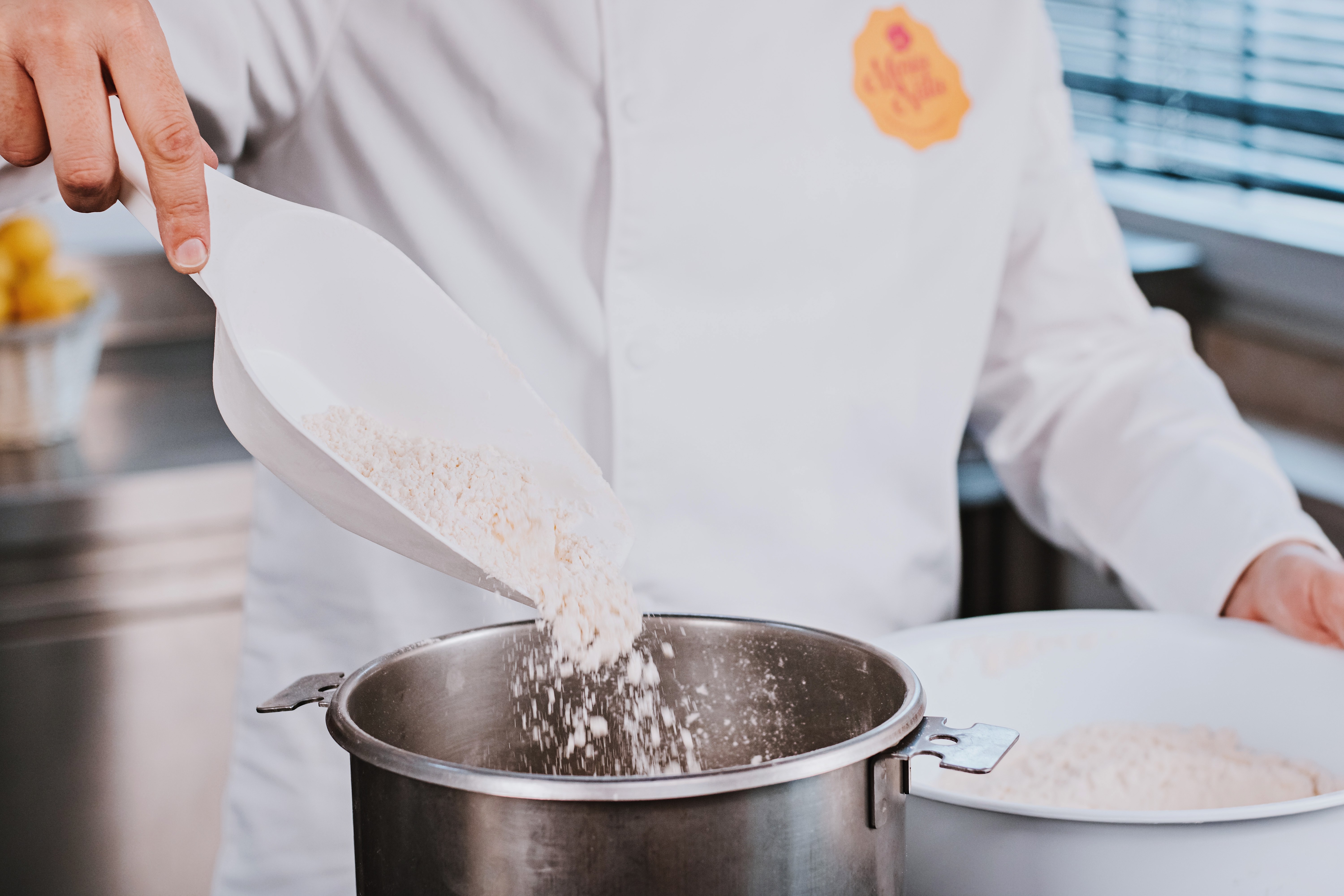In a post-covid world, the UK is now facing a cost-of-living crisis. A trend has emerged recently among British consumers, who are turning to frozen alternatives as a more affordable option.
Quick to react, the specialty sector has been increasing the offer of a wide range of artisanal frozen meal solutions. These products not only meet the demand for affordable and sustainable options, but also satisfy the desire for delicious culinary experiences.
The frozen food market has been growing in the UK for a number of years. Euromonitor research estimated that the UK market for frozen food was worth £7.8 billion in 2021 and would grow 3.8% annually until 2025. This includes bread, pastries, dessert mixes, frozen baked goods and cakes, but it gives a clear idea of the dynamism in the segment.
It’s not a surprise then that deep-frozen bakery specialist Bridor made a little incursion to the International Food & Drink Event (IFE) in London in March. The highlight was the new Panidor range where the Pastel de Nata shines. The frozen bakery-viennese pastries manufacturer based in Portugal was acquired only last year to reinforce the French group offering.
Frozen pastries have had a transformative effect, making it easier for bakeries, cafes, delicatessens, hotels or catering businesses to offer high-quality products while also reducing costs and increasing efficiency. Fresh pastries may have a different texture, but they also require more time, space and skill to make. Frozen pastries are convenient and can last longer.
Bakeries can store frozen pastries until they are needed, which helps to reduce waste and increase productivity. It also offers consistent quality, as frozen pastries are manufactured in a controlled environment, which ensures consistent quality and flavour. Quality helps to enhance the service reputation and customer loyalty.
Flexibility is also a benefit. Frozen pastries come in different shapes, sizes, flavours and fillings, which can cater to different customer preferences and occasions. Bakeries can also resort to the frozen variety and test new snacks to diversify their menu without investing in expensive equipment or additional staff.
They are healthier than people think. Frozen pastries can be made with wholesome ingredients such as whole grains, fruits, nuts and seeds, which can provide fibre, antioxidants and other nutrients. Because they’re ultra-frozen, the freshness of nutriments is locked in. They can also be lower in saturated fat than traditional pastries if they use unsaturated fat spreads instead of butter or lard.
Crucially, it allows cost savings, not only because frozen pastries can be purchased in bulk, require less labor and ingredient. Not to mention the reduced waste and environmental impact.
It terms of logistics, frozen pastries can be shipped and stored easily, making them accessible in establishments in remote locations or with limited resources and space. This provides businesses to offer a wider variety of baked goods, helping to keep track of stock better, meet consumer demand and increase revenue.
Frozen pastries are a particularly smart choice for urban businesses that want to offer delicious, nutritious and satisfying products to their customers while saving time, money and resources.






